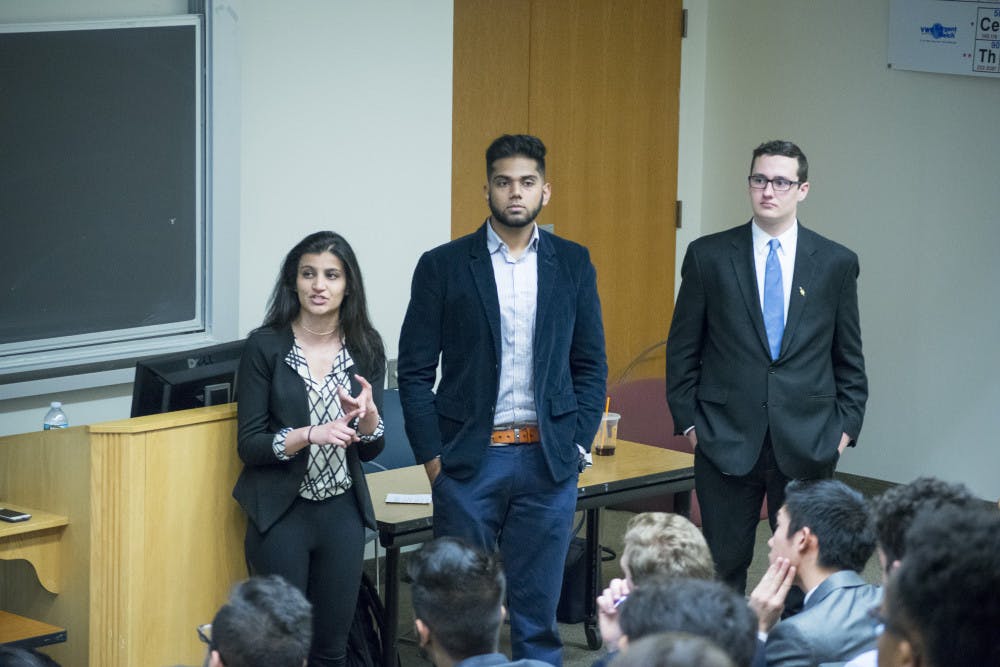By Megan Kelly
Staff Writer
Student Government approved four new clubs at its weekly meeting on Wednesday, April 19. The first club approved was the Civil Engineering Honor Society, which was previously the only engineering honor society not recognized by the College, according to Justin Brach, SG’s constitutional review chair and a sophomore finance and political science double major.
The Civil Engineering Honor Society “has a strong relationship with the National Civil Engineering Honor Society, Chi Epsilon, but can only receive funding after a one-year trial period,” Brach said.
The primary reason the honor society is seeking recognition at the College is so it can begin its trial period. The organization also wishes to honor high academic achievement. The honor society is not seeking funding from the Student Activities Fee, Brach said.

The National Society of Professional Engineers was also approved. This organization prepares engineering students for life after graduation and provides resources to members, particularly networking opportunities, Brach said. The society also hopes to host an “engineering-focused career event to help alleviate the difficulty in finding a position after graduation,” Brach said.
Currently, the society has 20 members and has hosted a general engineering seminar on campus. Being a member in the society also counts for credit for the ENG 099 course called “Senior Professional Seminar,” according to Brach. The society wants recognition at the College so they can book spaces for meetings, gain more members and reinforce engineering opportunities.
SG approved the Hamilton Society, a place for students to discuss political issues using a Mock Trial and Model Congress format, differing it from the debate team, according to Brach. The Hamilton Society primarily wants recognition so it can represent the College at competitions held by the American Mock Trial Association and does not need to be funded through SAF, as the organization uses out-of-pocket funds, Brach said.
The Hamilton Society currently has 48 members and an executive board made up of non-political science majors, demonstrating that students from all majors are welcome, Brach said.
The Young Americans for Freedom Club was also approved.
“(The organization) creates a unique community on our campus by championing conservative and libertarian issues,” Brach said.
YAF hopes to host different speakers on campus, as well as co-sponsor events with other clubs and other YAF chapters from universities, such as Rutgers and Ryder. The club hopes to encourage students to get involved in politics and eventually raise funds to build a memorial at the College to honor the victims of 9/11, according to Brach.







